Phoenix Framework Stars: 18 Best Developers
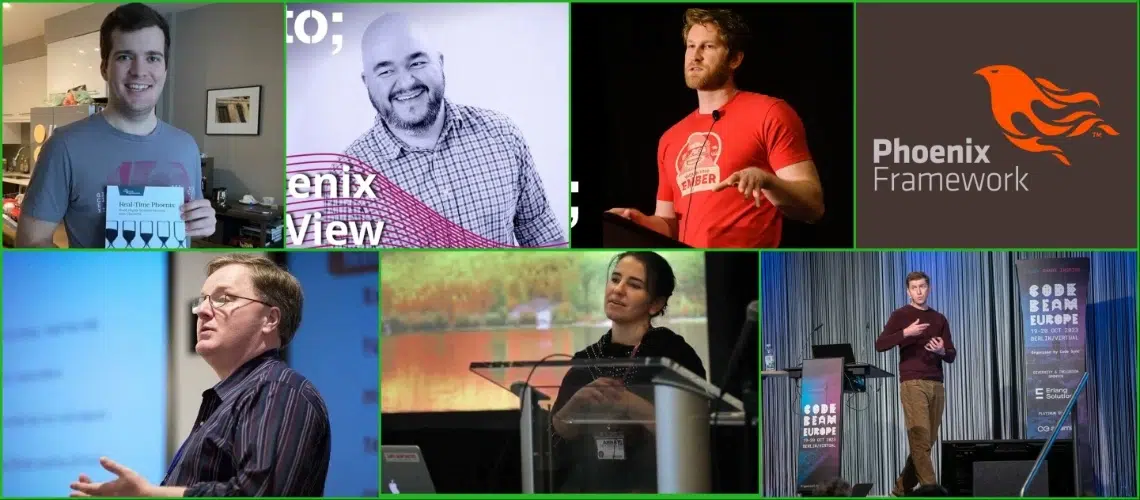
Phoenix, the web framework built on Elixir, has become a favorite among developers building fast, scalable, and maintainable web applications.
Its success is deeply tied to a passionate and innovative community—engineers who not only push Phoenix to new heights in production systems but also build the tools, write the books, and share the knowledge that moves the ecosystem forward. This curated and updated list features some of the most influential Phoenix developers in the world, including core open-source contributors, educators, startup founders, and real-time system architects. Whether you’re looking to learn, hire, or just get inspired, these are the names to know in the Phoenix world.
- Saša Jurić
- Bruce Tate
- Sophie DeBenedetto
- Dave Thomas
- Michał Muskała
- Ben Marx
- Brian Cardarella
- Devon Estes
- Eric Meadows-Jönsson
- Stephen Bussey
- Paul Schoenfelder
- Chris Keathley
- Geoffrey Lessel
- Marlus Saraiva
- Bruce Williams
- Anna Neyzberg
- Alex Koutmos
- Brooklyn Zelenka
Now, let’s delve deeper into their profiles and contributions.
Saša Jurić

Nationality: Croatian
Saša Jurić is a Croatian developer renowned for deep knowledge of Elixir/Phoenix and for authoring Elixir in Action, one of the community’s favorite books. With a background in high-performance server systems, Saša became an Elixir mentor and blogger who shares advanced patterns for scalable Phoenix applications.
He writes “(not only) Erlang related musings” on his blog The Erlangelist, exploring topics like OTP, concurrency, and code design in Elixir. A member of the Elixir core team in the past, Saša frequently contributes to open source and has created libraries to support robust Phoenix systems. He worked as a chief Elixir architect at companies like Aircloak and VeryBigThings, helping teams adopt Phoenix in production. Saša is also a sought-after speaker – known for talks like “To spawn, or not to spawn” – and is admired for his clear, pragmatic explanations. He continues to support the community through blog series and by answering questions to help others build reliable Phoenix apps.
- LinkedIn: Saša Jurić
- X (Twitter): @sasajuric
- GitHub: sasa1977
- Website/Blog: theerlangelist.com
Bruce Tate
Phoenix isn’t just fast—it’s built for the real-time web. It’s the only framework I’ve used that makes websockets feel like a first-class citizen.
Nationality: American
Bruce Tate is a veteran software engineer and serial author who has become a leading educator in the Phoenix and Elixir world. After a prominent Java/Ruby career, Bruce embraced Elixir and co-authored Programming Phoenix (with Chris McCord and José Valim) and Adopting Elixir, among other books.
He founded Groxio, an Elixir training and content platform, to “give back” by teaching the next generation of Elixir/Phoenix developers. Bruce has started multiple companies and even served as a CTO, but in recent years he’s focused on community-building: organizing conferences (like Gig City Elixir), hosting video series, and creating learning resources. An award-winning author of a dozen books, Bruce is known for making complex topics approachable. He actively codes in Phoenix (e.g. exploring LiveView and Nx in his training content) and mentors new developers, reflecting his passion for “giving back” to this thriving community.
- LinkedIn: Bruce Tate
- X (Twitter): @redrapids
Sophie DeBenedetto
Nationality: American
Sophie DeBenedetto is a prominent educator and engineer who has helped thousands learn Phoenix. She co-authored Programming Phoenix LiveView, the definitive book on Phoenix LiveView, and has written dozens of tutorials/demos showcasing LiveView’s power.
Sophie’s passion for teaching began as an instructor at the Flatiron School, and she continues to make complex Phoenix concepts approachable. She currently works as a Staff Engineer at GitHub, focusing on observability for GitHub’s platform, and previously led engineering of internal tools at PayPal.
Sophie is also a co-founder of the Brooklyn Elixir meetup. With her active coding in production systems at GitHub and her continuous content creation, Sophie bridges the gap between theory and practice, inspiring developers to adopt Phoenix LiveView for real-world apps.
- LinkedIn: Sophie DeBenedetto
- X (Twitter): @sm_debenedetto
- GitHub: SophieDeBenedetto
- Website/Blog: sophiedebenedetto.com
Dave Thomas
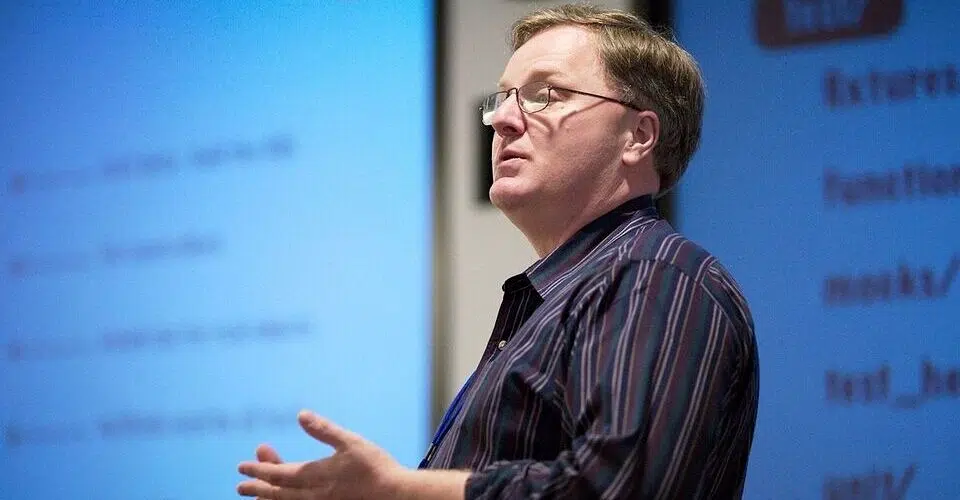
Nationality: British
Dave Thomas is an industry luminary best known as co-author of The Pragmatic Programmer, and he played a pivotal role in popularizing Elixir and Phoenix to the wider programming community.
A seasoned developer and author, Dave wrote Programming Elixir, one of the earliest books introducing Elixir to newcomers. He also created the “Elixir for Programmers” course and has delivered many talks advocating functional programming and Phoenix for modern web development. With decades of experience (he also helped launch Ruby on Rails’s popularity), Dave brought credibility to Elixir as a production-ready language. His approach to teaching – pragmatic and example-driven – has on-boarded countless developers to Phoenix. Even as a founder of the Pragmatic Bookshelf and an educator, Dave still codes and experiments with new Phoenix features, sharing insights with the community.
- LinkedIn: Dave Thomas
- X (Twitter): @pragdave
Michał Muskała
Phoenix gave Elixir a real-world purpose. It showed the world that functional programming can be both elegant and practical at scale.
Nationality: Polish
Michał Muskała is a prolific open-source developer from Poland who has greatly influenced Phoenix’s ecosystem through his work on Elixir and Ecto. A long-time Elixir Core Team member, Michał created the popular Jason JSON library and was a key maintainer of Ecto, Elixir’s database toolkit.
He has also contributed to Plug and other Phoenix foundations. Michał’s expertise in compiler and performance optimizations led him to work at WhatsApp in London, focusing on BEAM tooling to improve developer productivity. He remains a maintainer of several OSS packages and often shares his knowledge at conferences and in blogs.
Notably, he participated in Google Summer of Code 2015 to integrate MongoDB with Ecto, underscoring his early and continued commitment to Elixir’s growth. Muskała exemplifies the balance of academic skill with real-world Phoenix experience at scale, making him a respected authority in the community.
- LinkedIn: Michał Muskała
- X (Twitter): @michalmuskala
- GitHub: michalmuskala
- Website/Blog: michal.muskala.eu
Ben Marx
Nationality: American
Ben Marx was one of the first engineers to deploy Phoenix at massive scale in industry. As lead developer at Bleacher Report, he introduced Elixir/Phoenix to handle the sports media site’s high traffic and notifications, proving its viability in a top Alexa-ranked site.
He later co-authored Adopting Elixir, sharing strategies for introducing Phoenix/Elixir into existing teams and projects. Ben also became a Software Architect at SubSpace, where he again utilized Elixir for real-time services. His journey – from replacing a Rails architecture at Bleacher Report to building event-driven systems – has been featured in webinars and talks.
Now an engineer at WhatsApp (Meta) as of 2023, Ben remains an influential voice for companies evaluating Phoenix. His advocacy and real-world examples have helped many teams confidently adopt Phoenix in mission-critical systems.
Brian Cardarella
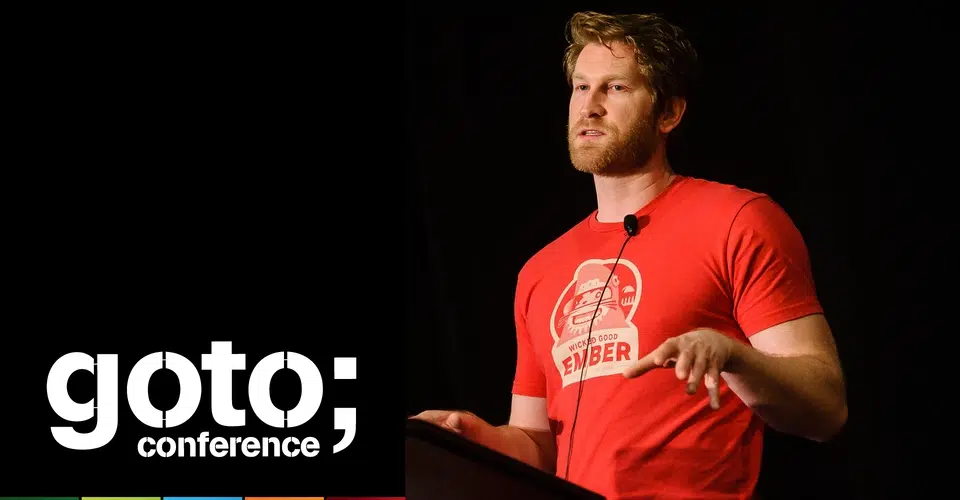
Nationality: American
Brian Cardarella is the founder and former CEO of DockYard, one of the premier consulting firms that specialize in Phoenix and Elixir development. Under Brian’s leadership, DockYard not only delivered Phoenix applications for clients but also invested heavily in the open-source community.
He hired Chris McCord early on and provided sponsorship that enabled Phoenix and LiveView to flourish. Brian himself is a developer-turned-entrepreneur; while running DockYard he remained hands-on, guiding technical architecture and even contributing to initiatives like LiveView Native. He also launched DockYard Academy to train new Elixir/Phoenix developers, addressing the talent pipeline.
Today, DockYard’s success stands as part of Brian’s legacy, showing how Phoenix can drive business value. Cardarella’s mix of business acumen and technical advocacy has had an outsized impact on Phoenix adoption in industry.
- LinkedIn: Brian Cardarella
- X (Twitter): @bcardarella
- GitHub: bcardarella
Devon Estes
Nationality: American
Devon Estes is an Elixir engineer famous for demystifying performance and reliability in Phoenix apps. An American developer currently working as a Senior Engineer at Sketch in Amsterdam, Devon maintains Benchee, the benchmarking library many Phoenix devs use to optimize code.
He is also the long-time maintainer of the Elixir track on Exercism, mentoring hundreds of students in functional programming. Devon’s blog posts are beloved in the community – for example, his “Inside the BEAM” series and articles like “What’s Inside a Reduction?” dig deep into how Elixir/OTP works, helping Phoenix developers write faster and cleaner code. He’s a frequent conference speaker, giving talks on topics like refactoring Phoenix code and using tools like Dialyzer effectively.
Estes’s dedication to “making Elixir go brrr” (i.e., run fast) and his approachable teaching style have made advanced topics accessible. When Phoenix apps run smoothly in production, often some advice or tool from Devon played a part.
- LinkedIn: Devon Estes
- X (Twitter): @devonestes
- GitHub: devonestes
- Website/Blog: devonestes.com
Eric Meadows-Jönsson
Nationality: Swedish
Eric Meadows-Jönsson is a Swedish developer whose contributions form the backbone of Phoenix applications’ package management and data layer. Eric is the original creator of Hex, Elixir’s package manager, which he launched in 2013 to provide the community with a fast, reliable way to share libraries.
Today, every Phoenix app depends on Hex for managing dependencies – a testament to Eric’s foresight. He also created Ecto, the database toolkit and ORM that Phoenix uses for modeling and querying data. As a core team member of Elixir, Eric has been an active figure in the BEAM community, known for meticulous, high-quality code. He co-authored Programming Ecto and has spoken about Elixir tooling at conferences since the early days. For many years, Eric maintained Hex and Ecto almost single-handedly, iterating them to maturity.
- LinkedIn: Eric Meadows-Jönsson
- X (Twitter): @emjii
- GitHub: ericmj
Stephen Bussey
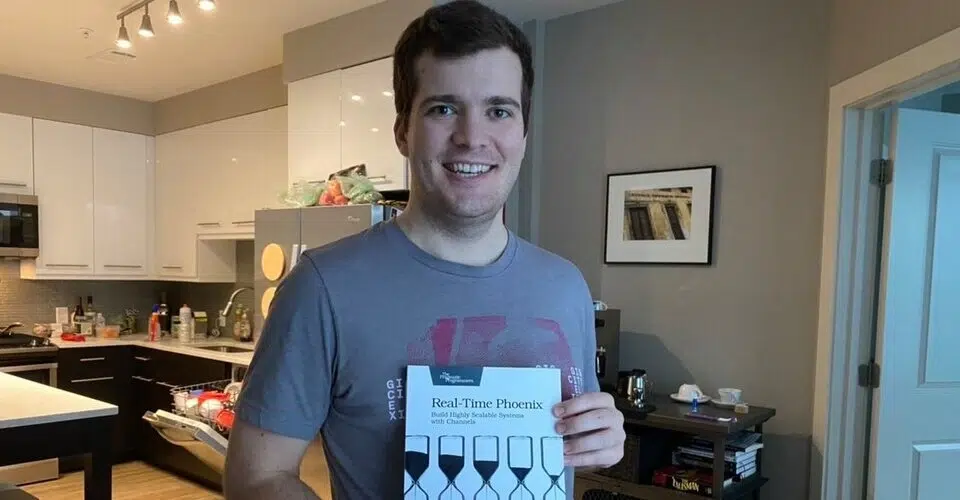
Nationality: American
Stephen (Steve) Bussey is a software architect who specializes in real-time features with Phoenix. He is the author of Real-Time Phoenix: Build Highly Scalable Systems with Channels, a book that teaches building Phoenix apps with WebSockets, PubSub, and Presence through practical examples.
Steve led development of real-time APIs at SalesLoft, a major sales engagement platform, where Phoenix Channels power live updates for thousands of users. As one of SalesLoft’s earliest engineers, he introduced Phoenix to replace portions of a Rails monolith, greatly improving the app’s interactivity. Stephen has shared his experiences in podcasts and talks, covering how to design Phoenix systems for unreliable connections, multi-node clusters, and performance testing.
Steve’s passion for Phoenix is also evident in community involvement: he speaks at meetups and on panels about adopting Phoenix at scale. In his current role, he continues to leverage Phoenix for real-time data (recently in fintech and analytics).
- LinkedIn: Stephen Bussey
- X (Twitter): @YOOOODAAAA
- GitHub: sb8244
- Website/Blog: stephenbussey.com
Paul Schoenfelder
Nationality: American
Paul Schoenfelder is an American engineer who has been crucial in the infrastructure side of Elixir/Phoenix deployments. He is the author of Distillery, the widely used release packaging tool that for years was the standard way to deploy Phoenix applications as self-contained OTP releases.
Paul’s work on Distillery filled a critical gap for Elixir in production and influenced the design of Elixir’s built-in mix release feature. As an Architectural Engineer at DockYard, he also worked on scaling Phoenix apps and even on R&D like the Lumen project. Paul has contributed to many libraries: Libcluster, Swarm, and others that underpin distributed Phoenix deployments.
Now a co-founder/CTO at a new startup, Paul remains at the cutting edge of Phoenix’s future. He frequently shares insights on forums and podcasts, helping the community navigate tricky DevOps and architecture challenges in Elixir/Phoenix.
- LinkedIn: Paul Schoenfelder
- X (Twitter): @gotbones
- GitHub: bitwalker
Chris Keathley
Nationality: American
Chris Keathley is a U.S.-based engineer recognized for his open-source libraries and for co-hosting the popular Elixir Outlaws podcast. As a principal engineer in the energy sector, Chris brings Phoenix into new domains. In the community, he’s best known for creating Wallaby and Raft. These projects showcase his ability to tackle both developer experience and deep engineering problems.
Chris is also a core maintainer of libraries like Vapor and a contributor to many others. His blog and talks often explore how to write cleaner, more maintainable Elixir code – for example, he gave a keynote “SOLID Code Isn’t Flexible” challenging some OOP notions in the context of functional Phoenix apps. As a podcast host on Elixir Outlaws for over 100 episodes, Chris has discussed everything from gossip protocols to team practices, influencing how developers think about building with Phoenix.
Known jokingly as a “dynamic language apologist”, he’s a strong advocate for Elixir’s pragmatic use in real systems over static-typing debates. Keathley’s mix of library development, thought leadership, and real-world project experience solidifies his spot among the Phoenix elite.
- LinkedIn: Chris Keathley
- X (Twitter): @ChrisKeathley
- GitHub: keathley
- Website/Blog: keathley.io
Geoffrey Lessel
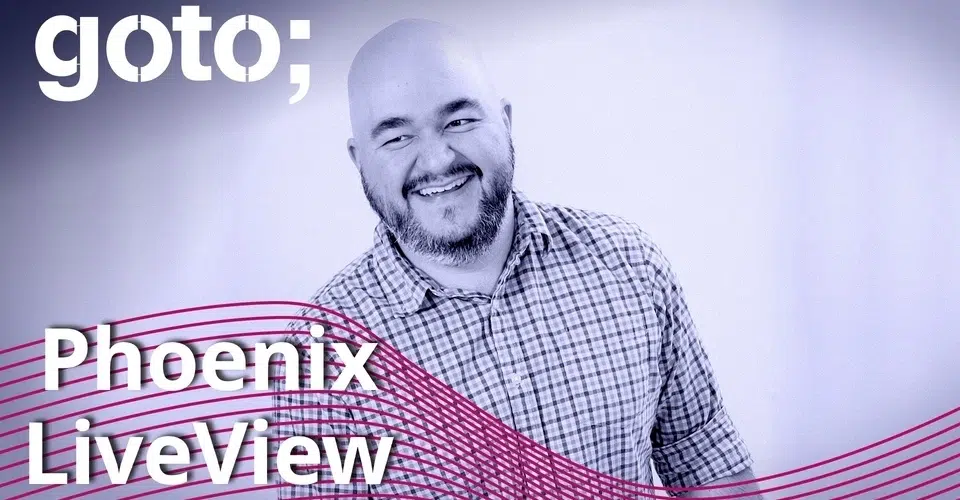
Nationality: American
Geoffrey Lessel is a seasoned web developer and one of the early voices documenting Phoenix for newcomers. Based in the United States, Geoff authored Phoenix in Action, an example-driven book that walks developers through building a Phoenix app from scratch.
He has 15+ years of web development experience, which gives him a balanced perspective when teaching Phoenix to those coming from other frameworks. Geoffrey frequently speaks at ElixirConf and local meetups, often focusing on integrating Phoenix with modern front-end or migrating legacy apps to Phoenix.
He’s also a prolific blogger – his site and tweets include many handy tips and small projects. Geoff’s writing style is approachable; he has been praised for “showing how quickly and cleanly Phoenix can be used to solve common web tasks”, bridging the gap for developers familiar with tools like ASP.NET or Django.
- LinkedIn: Geoffrey Lessel
- X (Twitter): @geolessel
- GitHub: geolessel
- Website/Blog: geoffreylessel.com
Marlus Saraiva
Nationality: Brazilian
Marlus Saraiva is a Brazilian software engineer who has created some of the Phoenix ecosystem’s most beloved libraries. He is the original creator of Surface, a component-based UI library for Phoenix LiveView, which brought a React-like development experience to LiveView apps.
He also co-created Broadway, a framework for building concurrent data pipelines in Elixir. Additionally, Marlus built ElixirSense, the behind-the-scenes tool enabling rich IDE features for Elixir, greatly improving developer experience. With over 20 years in software, Marlus has led teams to deliver products while also contributing heavily to open source.
Marlus speaks at conferences and appears on podcasts to discuss his projects. His focus on developer productivity is evident: PromEx (Prometheus metrics for Elixir) and other tools in his arsenal help Phoenix devs build faster and more confidently.
- LinkedIn: Marlus Saraiva
- X (Twitter): @MarlusSaraiva
- GitHub: msaraiva
Bruce Williams
Nationality: American
Bruce Williams is a polyglot developer and speaker who co-created Absinthe, the GraphQL toolkit for Elixir/Phoenix. As CTO of CargoSense, Bruce and his colleague Ben Wilson were early adopters of Phoenix and in 2015 started exploring GraphQL on the BEAM. This led to Absinthe’s creation, bringing a powerful GraphQL query engine and subscriptions to Phoenix.
Bruce also co-authored the book Craft GraphQL APIs in Elixir with Absinthe, sharing his extensive knowledge of building flexible APIs. Beyond GraphQL, Williams is known for his broad interests: he’s worked on static analysis, UX design, and even functional programming language design in his spare time. In the Phoenix community, Bruce contributed to libraries like Guardian and Comeonin in early days, and he frequently speaks at conferences about API design and type systems.
His ability to straddle low-level coding and high-level product thinking gives him a unique voice. Bruce was also a member of the Erlang Ecosystem Foundation’s education working group, helping craft learning resources. By integrating Phoenix with GraphQL through Absinthe, Bruce Williams unlocked new use cases for Phoenix developers, and his continued refinement of Absinthe cements his influence.
- LinkedIn: Bruce Williams
- GitHub: bruce
Anna Neyzberg
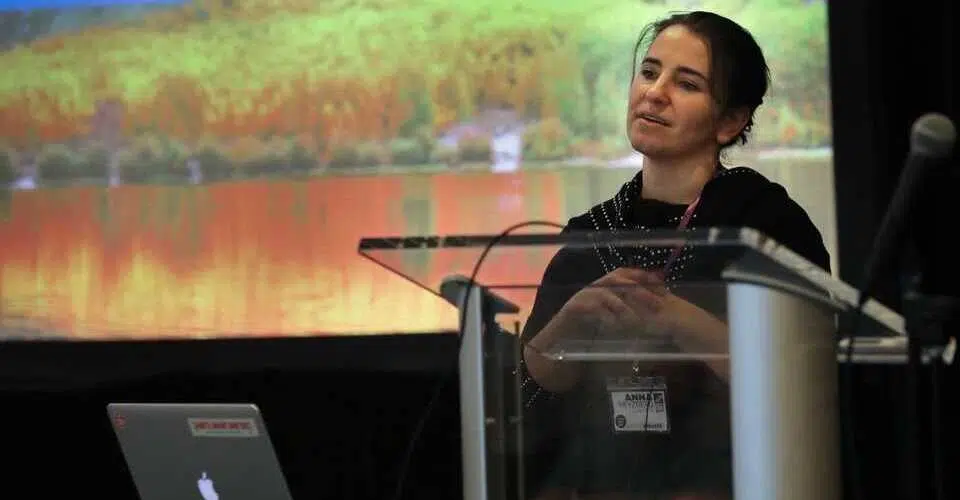
Nationality: American
Anna Neyzberg is an engineer and educator known for her work in diversifying the Elixir/Phoenix community and for speaking about concurrent systems. She co-founded ElixirBridge, an outreach program that offers free Elixir/Phoenix workshops to underrepresented groups, helping to grow a more inclusive community.
In her professional career, Anna has worked as an Engineering Manager and software engineer, where she guides teams using Elixir among other technologies. She remains a coder at heart – evident when she takes the stage at conferences. Anna has delivered talks like “Go vs Elixir: A Concurrency Comparison” and “How Do We Shape Community”.
Anna’s impact is also local: she helped organize the SF Elixir meetup and mentored many through ElixirBridge events. By lowering barriers to entry and sharing knowledge on OTP and Phoenix, Neyzberg has played a key role in the ecosystem’s growth. Her dual emphasis on people and technology continues to shape Phoenix’s community ethos.
- LinkedIn: Anna Neyzberg
- X (Twitter): @ANeyzb
- GitHub: aneyzberg
Alex Koutmos
Nationality: American
Alexander Koutmos is a developer-entrepreneur who has leveraged Phoenix in startups and created tools to improve Elixir development. He co-founded Papercups, an open-source live chat platform built with Phoenix that gained popularity as a drop-in alternative to Intercom.
Alex is also the creator of PromEx, a comprehensive Prometheus metrics library for Phoenix applications that can export rich metrics and pre-built Grafana dashboards. PromEx fills a key gap in observability, making it easier to monitor Phoenix apps. Alex currently works as a Senior Software Engineer at Boulevard, where he continues to code in Elixir/Phoenix for building scalable services. He’s active in content creation: writing on his blog about engineering topics and co-hosting podcasts like Beam Radio.
In the community, he’s recognized for his practical guides – for instance, his article “My Thoughts v1: Elixir from an engineer/business perspective” helps newcomers understand Elixir’s value proposition. Koutmos’s mix of startup experience and open-source tooling illustrates Phoenix’s strengths. As both an entrepreneur and engineer, he remains an advocate for using Phoenix to rapidly build and iterate on business ideas.
- LinkedIn: Alex Koutmos
- X (Twitter): @akoutmos
- GitHub: akoutmos
- Website/Blog: akoutmos.com
Brooklyn Zelenka
Nationality: Canadian
Brooklyn Zelenka is a Canadian developer who co-founded Fission, a company building decentralized web and edge computing tools, where she applies Elixir and Phoenix in cutting-edge contexts. As Fission’s CTO, Brooklyn is pushing Phoenix beyond traditional web apps, exploring concepts like local-first software and authentication with UCAN.
Before Fission, she was known in the Elixir community for her functional programming libraries Witchcraft and Exceptional, which bring algebraic and monadic abstractions to Elixir for more expressive code. These libraries are used by advanced Phoenix developers to write elegant error handling and data transformations.
Additionally, she contributed to Ethereum’s core development, adding a blockchain perspective to her skill set. Zelenka’s work exemplifies innovation with Phoenix: whether it’s real-time collaborative tools, IPFS/file system integrations, or purely functional coding style, she explores new horizons.
- LinkedIn: Brooklyn Zelenka
- GitHub: expede
Wrap Up
These legends represent exceptional talent, making them extremely challenging to headhunt. However, there are thousands of other highly skilled IT professionals available to hire with our help. Contact us, and we will be happy to discuss your hiring needs.
Note: We’ve dedicated significant time and effort to creating and verifying this curated list of top talent. However, if you believe a correction or addition is needed, feel free to reach out. We’ll gladly review and update the page.
